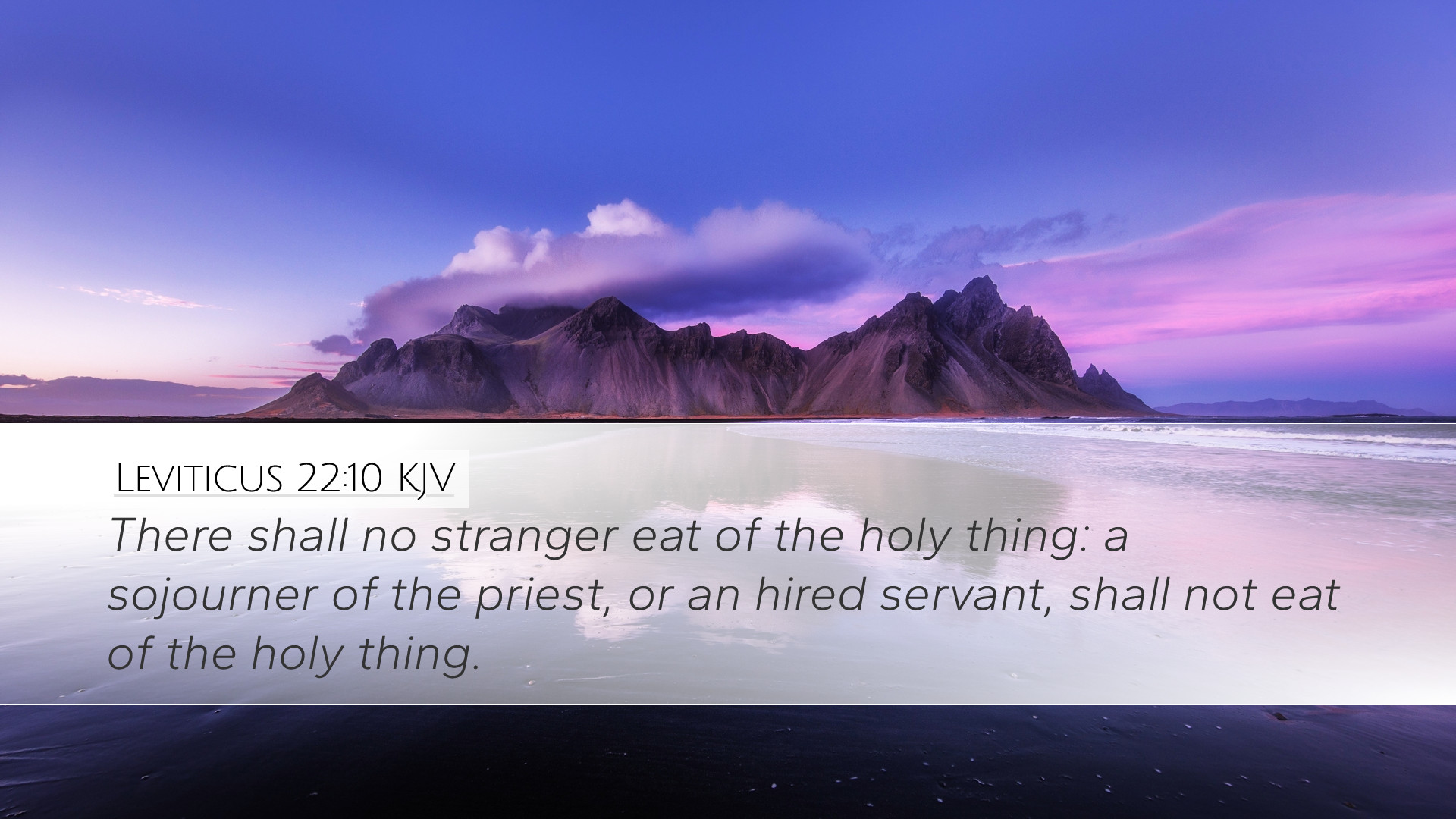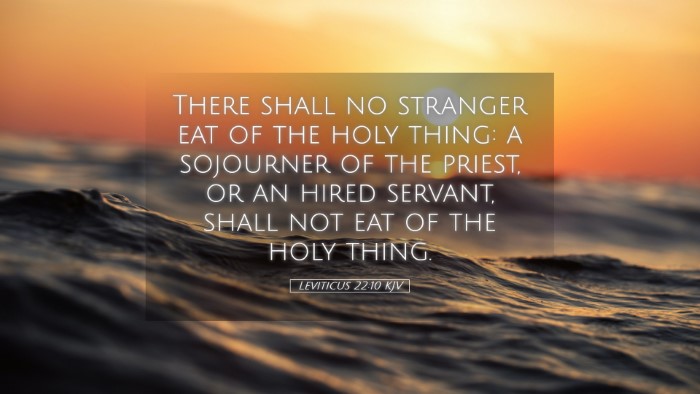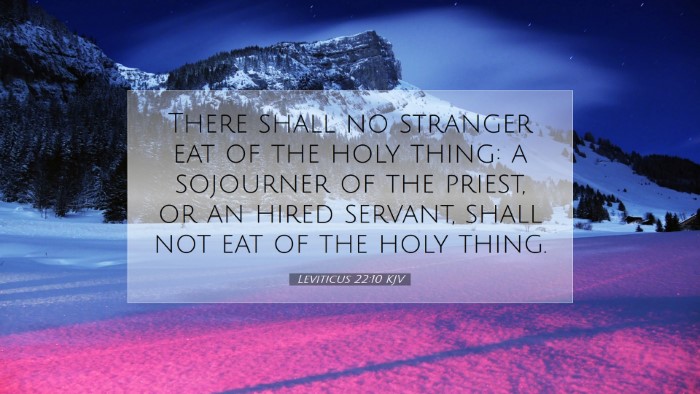Commentary on Leviticus 22:10
Verse: "There shall no stranger eat of the holy thing: a sojourner of the priest, or a hired servant, shall not eat of the holy thing."
Introduction
This verse appears within the context of Levitical laws, emphasizing the sanctity of offerings and who may partake of the holy things associated with the priesthood. Various commentaries shed light on the implications of this prohibition, elucidating the importance of maintaining purity and the gravity of the priestly role within Israelite worship.
Contextual Background
Leviticus is structured around the theme of holiness, illustrating how the Israelites are to live in a way that is set apart for God. The regulations on sacrifices and offerings reflect a profound respect for divine worship and the people chosen to lead it. In Leviticus 22, specific guidelines are provided, particularly in verses that address who may partake of offerings placed before God.
Exegesis of the Verse
Matthew Henry's Commentary: Henry notes that the term "stranger" refers to any non-Israelite, emphasizing the exclusivity of the holy things for the covenant people. The holiness of the sacrificial system dictates that only those who have a rightful claim to it, particularly those within the priestly family, may consume what is deemed sacred.
Albert Barnes' Notes: Barnes elaborates on the idea that "sojourner" and "hired servant" denote those who may temporarily participate in the community but do not hold the privileges of Israelite birth or priestly order. This reinforces the notion that spiritual privileges are reserved for those in covenant relationship with God.
Adam Clarke's Commentary: Clarke emphasizes that the term "eat" indicates a sharing in the sacrificial rite, which is an act of communion with God. He points out that permitting outsiders to partake could diminish the sanctity of the offerings and confuse the understanding of holiness among the people.
Theological Implications
The restrictions outlined in this verse reflect broader theological themes regarding holiness and community. The distinction between the sacred and the secular is a recurring biblical motif that seeks to delineate God's presence and intention through various rites and regulations.
- Holiness: The call to holiness underscores an important principle in both the Old and New Testaments, where believers are set apart for God’s purposes.
- Community Identity: By delineating who may partake in holy things, this regulation reinforces the identity of the community of Israel as a people chosen to minister before God.
- Access to God: The exclusive nature of the holy things affirms the idea that access to God is not universal but granted through specific covenant relationships.
Application for Today
While the cultural and historical contexts may differ, the underlying principles from Leviticus 22:10 present vital lessons for contemporary believers.
- Understanding Our Identity: Modern Christians are called to recognize their identity in Christ, which must guide how they approach the things of God.
- Respect for Holiness: A profound respect for sacred practices and beliefs can help nurture spiritual maturity and uphold community integrity.
- Inclusivity and Exclusivity: The balance between inviting others into a relationship with God while maintaining the standards of holiness remains a delicate yet crucial conversation in the church today.
Conclusion
Leviticus 22:10 serves as a reminder of the sacredness associated with God’s laws and principles. The insights drawn from esteemed commentaries illuminate the careful approach required in understanding biblical texts, encouraging readers to appreciate the profound implications these laws have on both ancient and modern faith communities.


